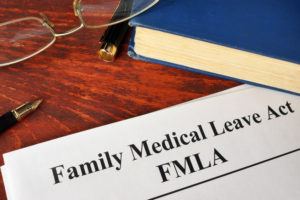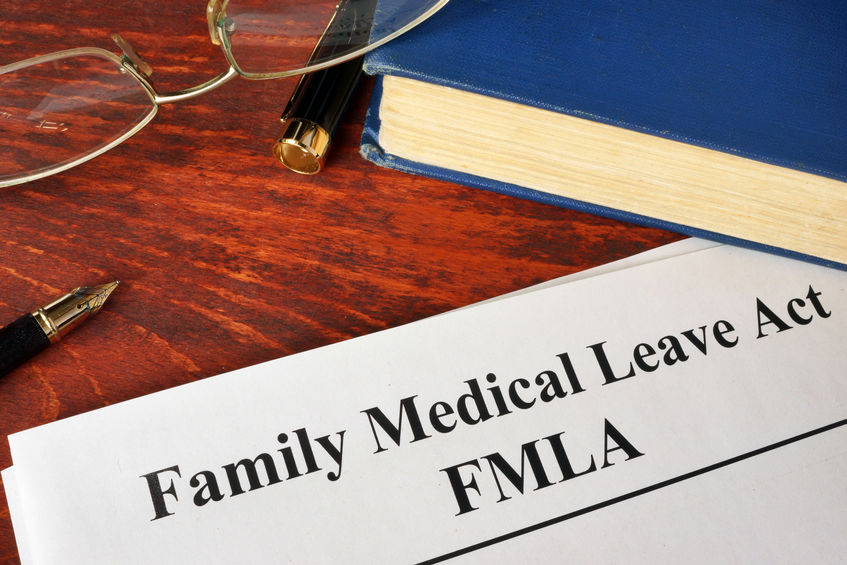Our second blog on job-protected leave addresses your rights to take leave from work based on the Family and Medical Leave Act, also known as the FMLA, for medical-related reasons for you or your family.
The FMLA allows you up to 12 weeks of unpaid, job-protected leave every 12 months for the following reasons
- To care for your own serious health condition (see below);
- For the birth, adoption or placement of a child, for both men and women; or
- To care for your spouse, parent or child who has a serious health condition.
A “serious health condition” is:
- An illness, injury, impairment, or physical or mental condition that involves continuing treatment by a health care provider;
- Pregnancy;
- Chronic condition care;
- Surgical procedures; and
- Other similar types of health conditions.
In order to qualify for FMLA leave, your employer has to have at least 50 employees within a 75 mile radius. If your employer meets that criteria, you will need to have worked for that employer for at least 12 non-consecutive months and 1,250 hours in a year. Both private companies and public agencies are considered “employers” under the FMLA, including federal, state and local government agencies, their political subdivisions and educational agencies.
Once you determine if you and your employer are covered by the FMLA, you have several things to do and decisions to make:
- Research your employer’s FMLA policy and requirements because you may be required to use all your vacation and sick leave AT THE SAME TIME as your FMLA leave.
- Give 30 days’ notice to your employer in a non-emergency situation, like if you have surgery scheduled. If you have urgent or emergency need for leave, request it as soon as possible.
- Discuss with your doctor if you need a certain number of days of leave in a row, or if your health condition will require you take “intermittent” leave, which is FMLA leave on an as-needed basis.
- Have your doctor complete a form called Certification of Health Care Provider for Serious Medical Condition (Family and Medical Leave Act) for employee or for family member, and timely submit it to your employer within 15 days of receiving it from the employer.
- Since FMLA leave is unpaid, you should also look into other benefits you may have that will provide some compensation while you are out — short-term disability, for example.
Just a reminder, your employer needs to keep the reasons for your leave confidential.
The FMLA provides protection if you need time off under the above circumstances. Under the FMLA, your employer can’t punish you for taking leave, they can’t fire you, harass you, discipline or demote you or use your request for leave against you. If you take FMLA leave, you have the right to return to your same position or a similar position when you get back at the same pay and benefits. But, if you are unable to return to work at the expiration of the 12 weeks of FMLA leave, your employer does not have to hold your job open for you. However, you may be entitled to additional leave according to the Americans with Disabilities Act.
If you requested FMLA leave and your employer denied or interfered with you taking leave, or in any way retaliated against you after you exercised your rights under the FMLA, your employer may be liable for your lost wages and benefits, liquidated damages, injunctive relief, and recovery of your attorneys’ fees. However, if you requested leave for your personal serious health condition, and you worked for the State, you cannot sue the State for violation of your rights under the FMLA.

